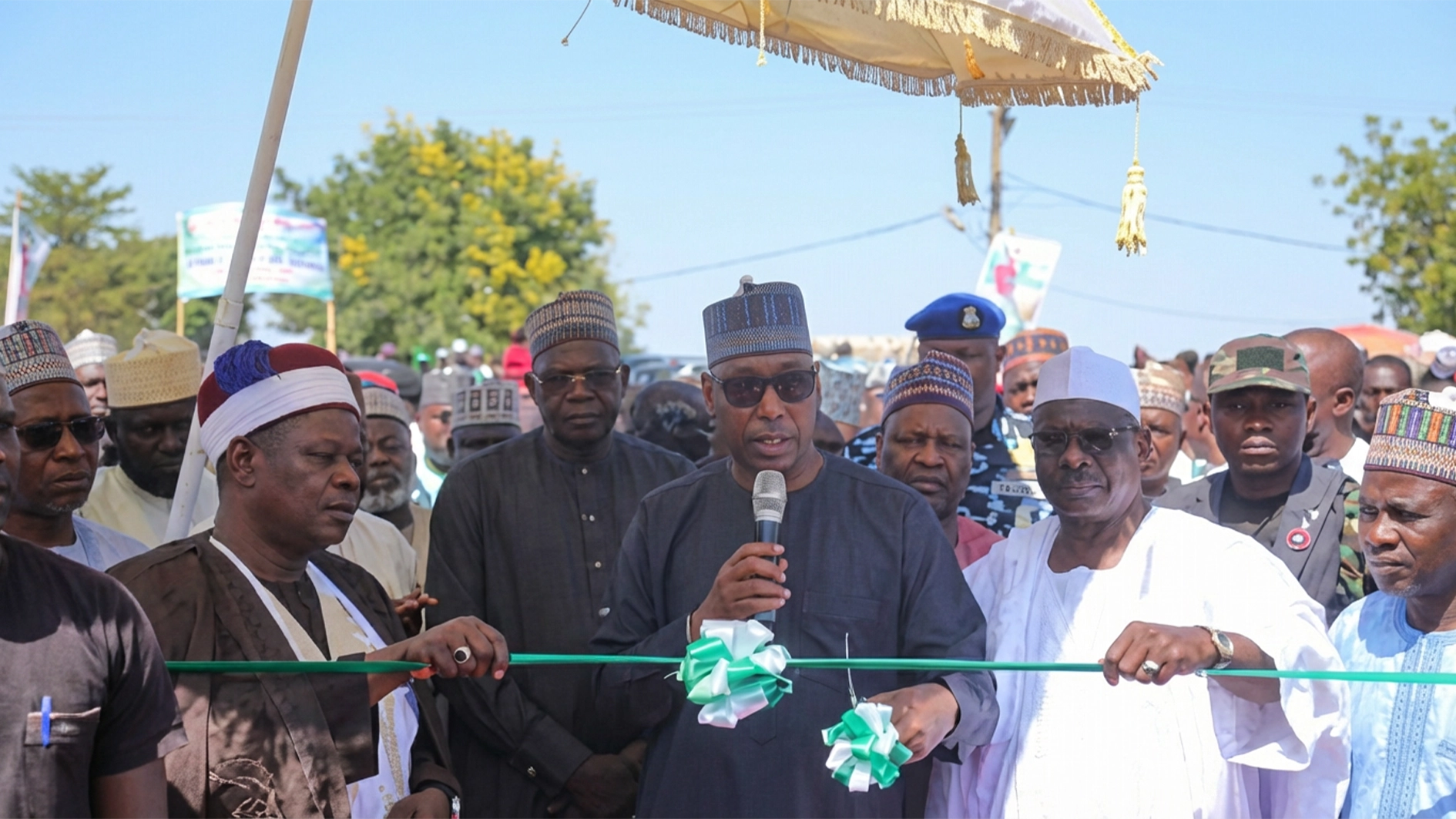The Federal Government has declared that, effective from October 6, all graduating students, whether educated in Nigeria or abroad, must submit their thesis and final-year projects to the Nigeria Education Repository and Databank (NERD) as a mandatory condition for mobilisation into the National Youth Service Corps (NYSC) scheme.
In a circular issued by the Secretary to the Government of the Federation, George Akume, the government stated that the NYSC mobilisation criteria have been adjusted to include proof of compliance with the NERD Policy for all prospective corps members.
Under the NERD policy, students are required to upload their academic work, including theses and project reports, into the national database.
Section 6(1) (23) of the guidelines described the process “as a quality assurance check and yearly independent proof of continuous academic enrolment and affiliation”.
NERD spokesperson, Haula Galadima, said apart from the mandate to verify for authenticity as a national flagship, the NERD digitisation programme has a clear objective to raise the bar in the quality of academic content, output and presentation nationwide.”
She noted that the repository will record comprehensive details of each submission.
“Each item shall feature the full name of the student, that of his supervisor, co-supervisor if any, and that of the Head of Department, as well as the sponsoring institution and department,” Galadima said.
Addressing the policy’s impact on academic supervision, she added: “If our eminent scholars are aware that their names will appear next to those of the students they supervise on a globally available digital platform, there is the likelihood that each lecturer would up his or her standard. Very few lecturers would want their names associated with poorly produced academic works.”
According to the circular, the enforcement applies to graduates from Nigerian universities, polytechnics, colleges of education, and foreign institutions.
The federal government said the reform is aimed at curbing certificate fraud, safeguarding Nigeria’s intellectual property, and enhancing the credibility of academic qualifications nationwide.
While applauding the government’s decision, Dr Jonah Onuoha, from the University of Nigeria (UNN), said the move will enhance the quality of products being produced by the nation’s tertiary institutions.
He noted that there are many universities that are not registered, but still find a way to mobilise corps members for service.
According to him, the move will help to enrol authentic graduates of tertiary institutions, both home and abroad.
“At least, one would have to show evidence that one is a graduate of a university. And, more importantly, to have the documentation of the achievement of our tertiary institutions. If we have the database of this youth service project, and they are put on the internet, the world will be able to know what our institutions are doing.”
More importantly, Onuoha said the move will force many institutions to engage in proper supervision of their students, knowing that it will be forwarded to the appropriate quarters. Therefore, it won’t be business as usual, which will enhance quality control.
He, however, expressed concerns over the lack of consistency in government policies, emphasising the need to ensure that the decision is sustained at all costs.
However, eminent historian, Prof. Ayodeji Olukoju, and Prof. Adamu Tanko of Bayero University, Kano (BUK), have described the decision as unnecessary and an overreach.
They both agreed that the approach was wrong, wondering what informed the decision.
“What is the motive for the directive? Is the government trying to see whether they plagiarised, hired mercenaries, or what is the thought behind that decision?
“To say that students should prove their status by uploading their thesis is the wrong approach. They can upload any project, clear a page, paste content, and post it. It is only the university that can authenticate whether the project is authentic or not. Anybody can clone. And we are going to see now that they might inadvertently be creating an industry for people to create projects that they can upload.”
Olukoju stated that the National Universities Commission (NUC) should maintain a database of validly approved and licensed universities. It is not a project that makes the graduate; it is the authenticated certificate issued by the university.
“To say that students should prove their status by uploading their thesis won’t make any difference. It would not solve the problem of fixability or proliferation of institutions. Proliferation is what NUC should check.
Tanko, on his part, said introducing a new policy without consulting universities may cause problems.
“It’s important if they clear this with all universities. With students downloading numerous items, and now that we are in the era of Artificial Intelligence (AI), projects can be created in a matter of minutes. Anybody can upload anything that they feel like uploading. I’m not sure if the NYSC has the capacity to clearly state whether a particular project is good enough for somebody to mobilise, or it’s not good enough for somebody to be refused mobilisation.”
A lecturer at the University of Ilesa, Osun State, Dr Adebukola Ayoola, said the policy is illogical and a misplaced priority.
Reminding that what qualifies a graduate is his or her certificate, Ayoola noted that if the university has certified a student fit for learning and character, that should suffice.
The Deputy Vice Chancellor, Achievers University, Owo, Ondo State, Prof. Oyesoji Aremu, said the policy raises more questions than answers.
“Is it the student or the supervisor who will have the propriety of the project? What happens to some higher institutions that do not write projects?”
Aremu said the federal government should have given a timeline for schools to improve the quality of projects.
Acting Dean, School of Library, Archival and Information Science, Lagos State University (LASU), Prof. Emmanuel Adebayo, stated that to make an impact in governance, every leader must have a way of reviewing their activities for quality.
He said the decision would go a long way in ensuring that those who have undergone some form of education present themselves for youth service.
Adebayo pointed out that the development would also serve as a form of check for lecturers and institutions that may be encouraging substandard research output, knowing that their works will be subjected to peer review by higher bodies.
He suggested that, for thoroughness, the institutions concerned should be required to send their research output directly to the body, or if students are involved, they must use institutional email addresses.
Speaking in the same vein, Prof. Samuel Odewumi of the Department of Transport at LASU said the directive is meant to promote original and high-quality research works.
Odewumi said the additional advantage is to make a high volume of research work from all over the country available to any serious student, noting that the usual refrain that there is no literature in any area of research will no longer be tenable.
The transport expert also observed that with the development, the ranking of Nigerian universities will be positively affected.






